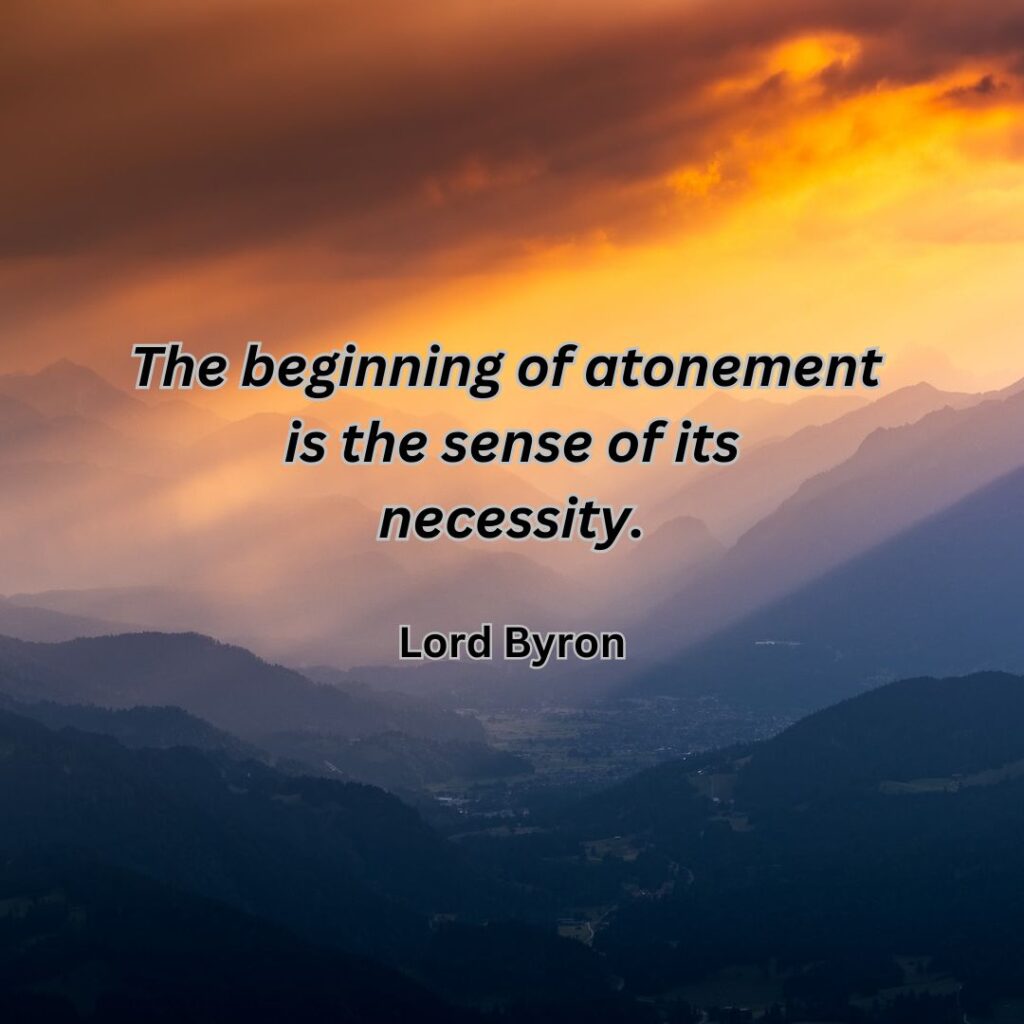“The beginning of atonement is the sense of its necessity.”
Lord Byron
Happy Monday!
I hope your weekend was restful!
Many recognize the last couple of days as eventful for various reasons. Saturday was the beginning of Autumn here, so I know some are excited about all things pumpkin spice and Fall seasonal colors and treats. I’ve seen several references on social media to that effect. I hope Starbucks is ready for the onslaught.
In the tradition of Judaism, the highest of holy days, Yom Kippur, the Day of Atonement, was observed. The literal translation of the word is reparation for an offense or injury, according to Merriam-Webster (2023). It’s a day dedicated to grieving the effects of sin from a place of repentance, thereby reconciling with God. An example in everyday terms is apology and forgiveness.
Lord Byron has this to say:

In the beginning, our reflection brings acknowledgment. Recognizing a need is the first step in initiating change. However, it’s not enough to merely see the condition; the process of working through the stages of transformation may be demanding, but it completes the process.
As with any act of repentance, Yom Kippur is a somber day in which special efforts are made to fast and pray. We may not take as much care in preparing to apologize or forgive, but the sentiment of reverence, in essence, is the same. Many may be wise to take more time to understand why apologies and forgiveness require a reflective attitude. I wonder if there would be more authentic efforts if we truly understood the significance of reparation.
We’ve often heard people talk about the need to forgive and forget. I’m not sure it’s possible to overlook an offense entirely. The importance of forgiveness rests in the ability to, as an act of will, no longer hold the offense or person in a negative space. There’s freedom in allowing forgiveness to lead us to reconciliation, but also in taking care to hold protective boundaries.
The slogan from the Anonymous groups comes to mind as a great example: Let Go and Let God. It’s a choice to allow the offense to become a thing of the past, allowing God to deal with the consequences and continue wishing the best for the other person. It’s also a choice to sense the necessity and initiate a conversation that begins with I’m sorry. Both are challenging, and both bring atonement.
Here’s a Scripture that sums up forgiveness and atonement:
“Count yourself lucky, how happy you must be— you get a fresh start, your slate’s wiped clean.” Psalm 32:1 (MSG)
Sometime this week, take a moment to consider what offenses you’re harboring, who you need to forgive, and from whom you seek forgiveness. Then, spend some time reviewing why these things are included on your list and choose how you’d like to proceed to find peace. Finally, find a way to either forgive or make amends. The process will likely give you a new sense of self in a positive way.
Be Well & Be Blessed!
Lucinda
Comments by lucinda